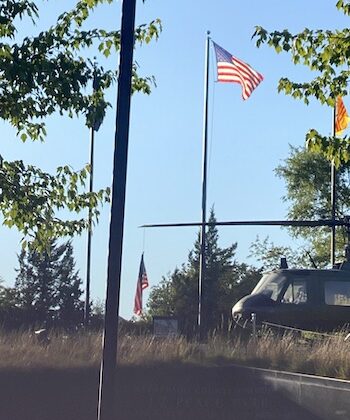I’m sure you’ve heard that the Fourteenth Amendment is in the news. Let’s revisit our Constitution to ensure We the People can interpret the story correctly, not letting emotional media reports guide us.
Amendment XIV- One of the Post-Civil War Amendments
Amendments Thirteen through Fifteen are called the post-Civil War Amendments or Slave Amendments.
Amendment Thirteen officially abolished slavery.
Amendment Fourteen outlines who is considered a citizen of the United States. It also says that states may not deprive anyone of their God-given rights to life, liberty, or property without due process of law.
Amendment Fifteen says that U.S. citizens may not be deprived of the right to vote because of race, color, or previous servitude (slavery).
So, how can the USA disqualify someone running for President by using one of the slave amendments? Let’s look at Amendment XIV, section 3:
No person shall be a Senator or Representative in Congress, or elector of President and Vice President, or hold any office, civil or military, under the United States, or under any state, who, having previously taken an oath, as a member of Congress, or as an officer of the United States, or as a member of any state legislature, or as an executive or judicial officer of any state, to support the Constitution of the United States, shall have engaged in insurrection or rebellion against the same, or given aid or comfort to the enemies thereof. But Congress may, by a vote of two-thirds of each House, remove such disability.
More Clarity on Amendment XIV, Section 3
Notice what it doesn’t say. Section 3 does not use the word “president.” It says, “elector of president…” Why do you think it doesn’t list the word “president?” One reason may be to prevent anyone from accusing a president of insurrection or rebellion (an armed coup is what our forefathers had in mind). In a free nation, we assume that when We the People choose a president, that person has sworn an oath to follow the Constitution. Also, we consider they are not planning an armed coup to hold us or our Supreme Law of the Land hostage. However, this section assumes that any other person in a position of authority could lead an insurrection or rebellion. Such was the case of the Civil War with the South against the North.
Moreover, Section 3 averts another Civil War led by those who “having previously taken an oath, as a member of Congress, or as an officer of the United States, or as a member of any state legislature, or as an executive or judicial officer of any state, to support the Constitution of the United States,” from leading an armed coup.
Our forefathers did not want a repeat of the Civil War. They did not set up Section 3 to stop citizens from presenting their government with a redress of grievances. Sometimes, presenting a government with a redress of grievances goes awry. However, the intent is still for We the People to voice our grievances, not subvert the citizens, the Constitution, or any branch of the U.S. government.
In Conclusion
Keep thinking this through using scholarship, not feelings, as the Supreme Court is set to hear the Fourteenth Amendment case, Section 3 this fall.
This is Common Sense Civics and Citizenship.🇺🇸
Join the Conversation! https://www.facebook.com/commonsensecivics

